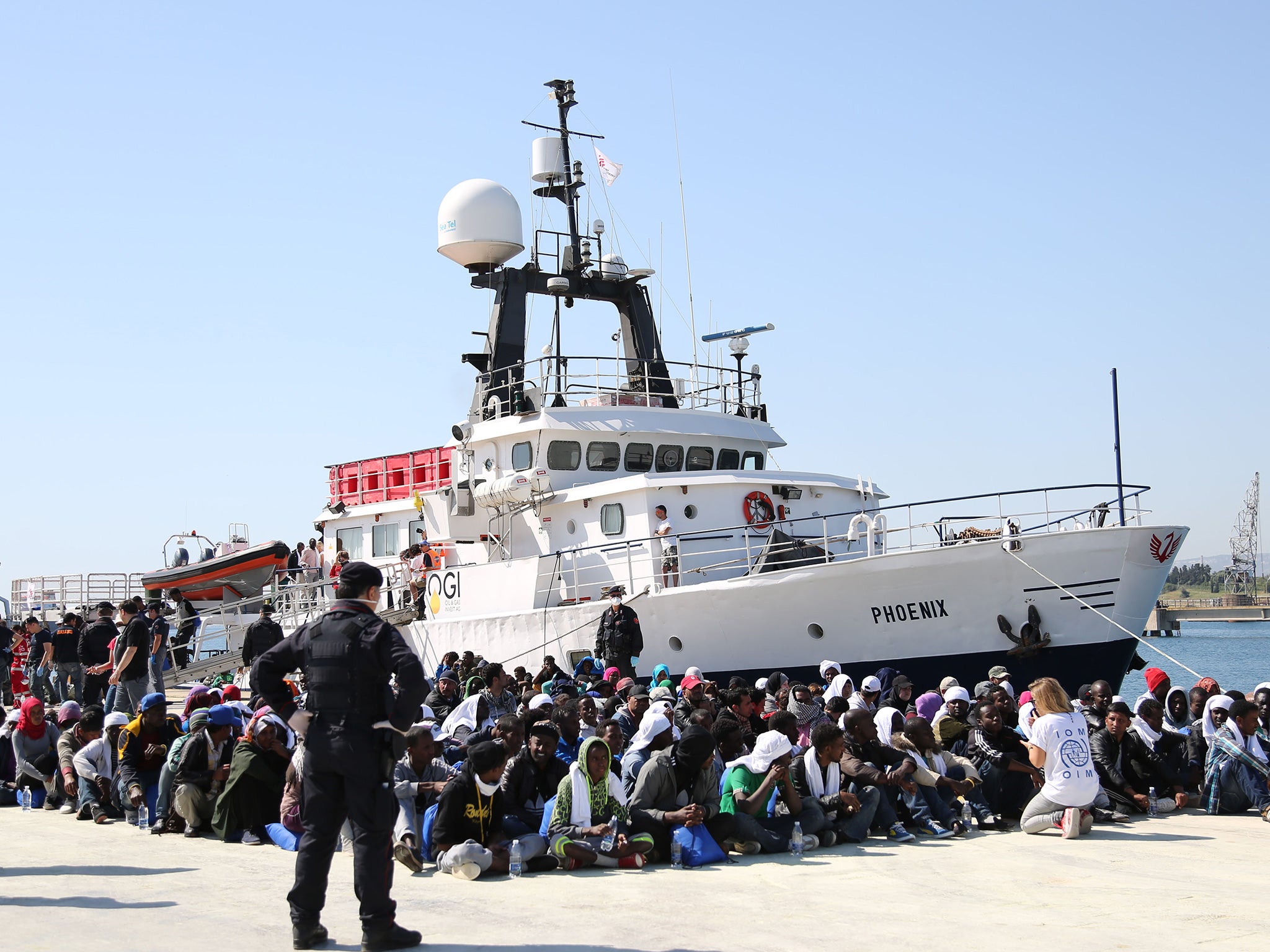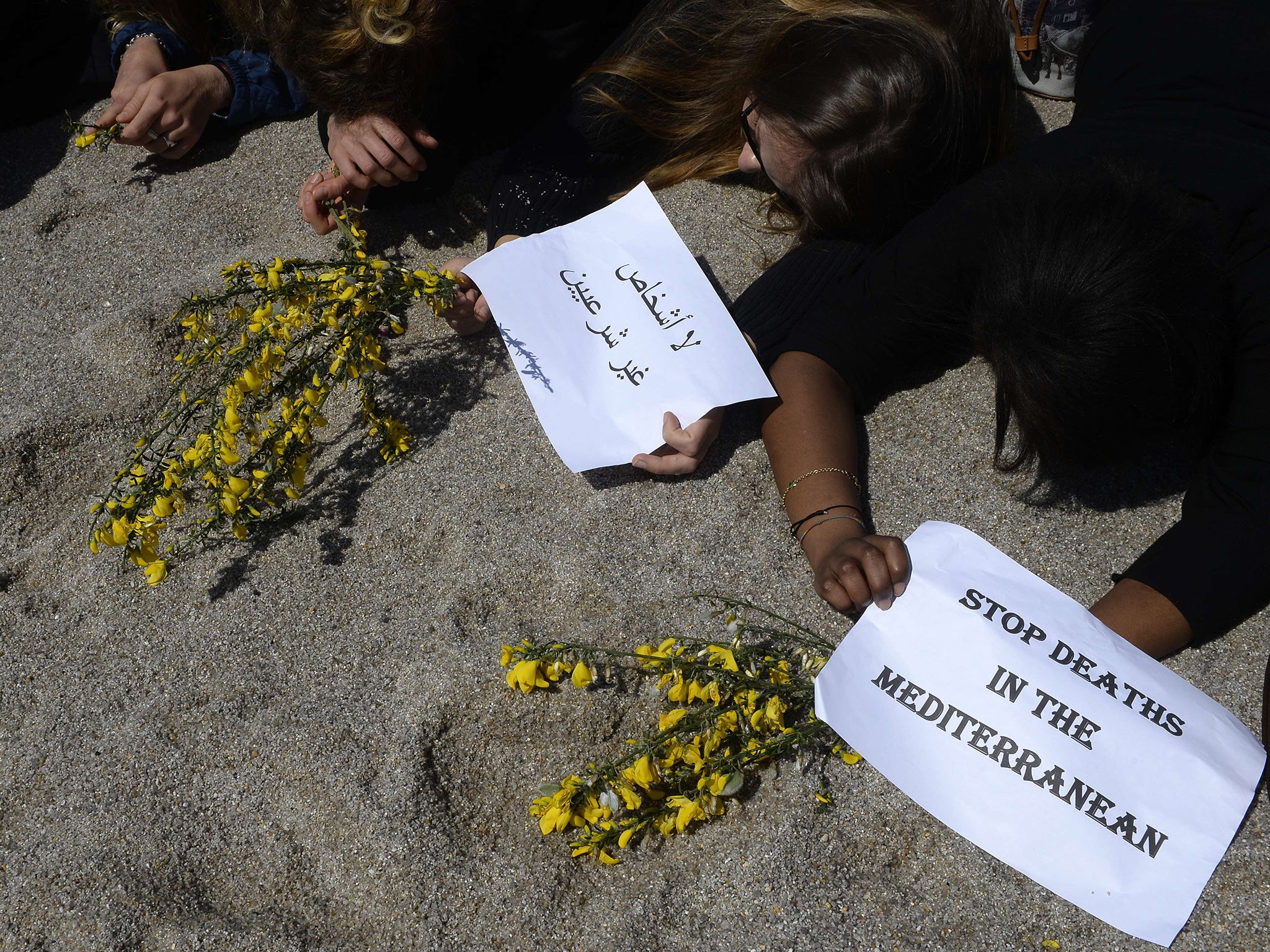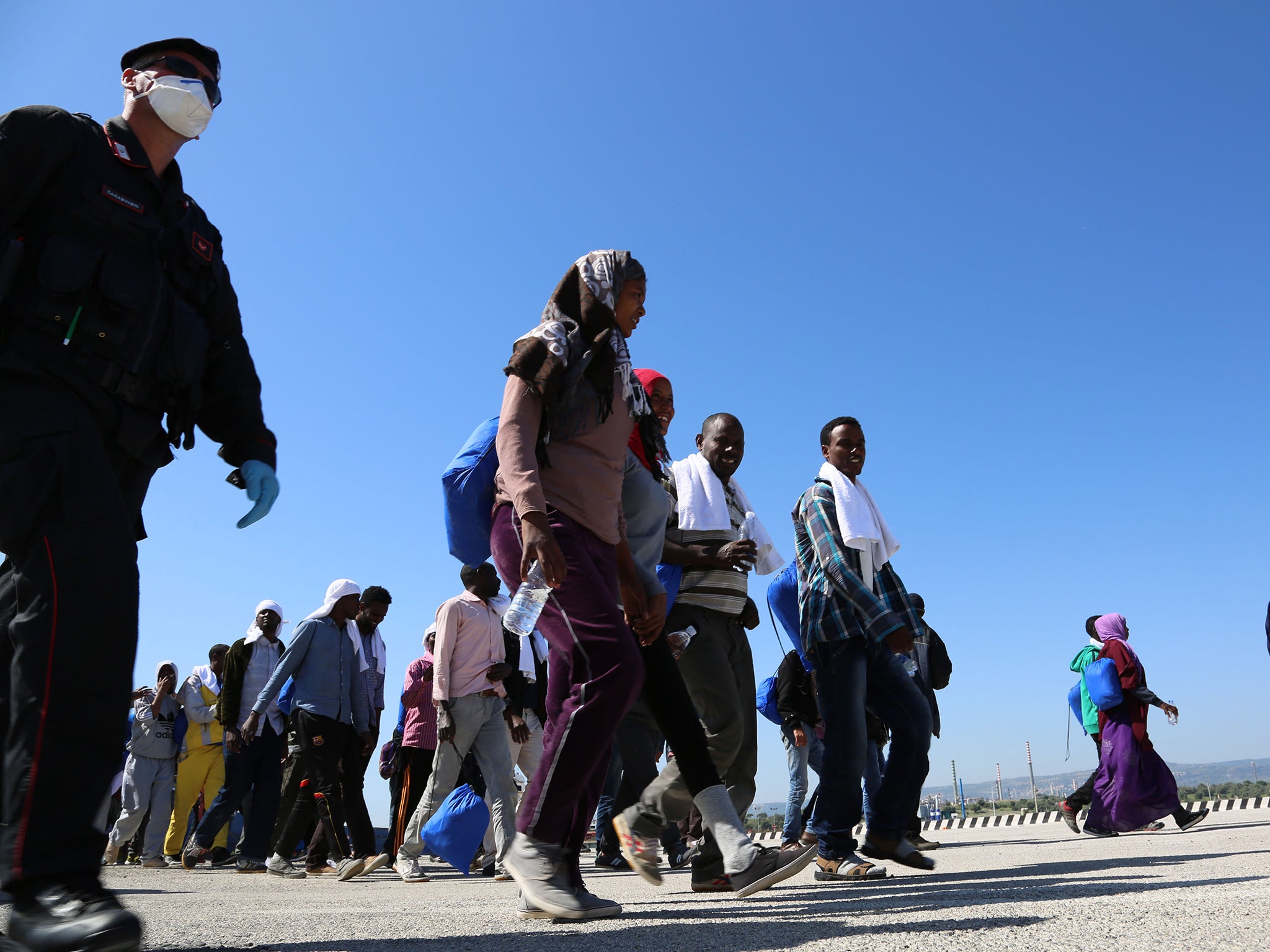Mediterranean migrant crisis: EU seeks UN approval for gunship plan and 'use of force' to deter boats from Libya
As Europe presents to the UN its audacious military plan to halt the tide of migrants in the Mediterranean, questions remain about its mandate while aid agencies say the new measures will not stop the crisis

Your support helps us to tell the story
From reproductive rights to climate change to Big Tech, The Independent is on the ground when the story is developing. Whether it's investigating the financials of Elon Musk's pro-Trump PAC or producing our latest documentary, 'The A Word', which shines a light on the American women fighting for reproductive rights, we know how important it is to parse out the facts from the messaging.
At such a critical moment in US history, we need reporters on the ground. Your donation allows us to keep sending journalists to speak to both sides of the story.
The Independent is trusted by Americans across the entire political spectrum. And unlike many other quality news outlets, we choose not to lock Americans out of our reporting and analysis with paywalls. We believe quality journalism should be available to everyone, paid for by those who can afford it.
Your support makes all the difference.Their deaths have appalled the world. In record numbers, would-be migrants have perished at sea attempting to escape the chaos of their homelands for the safety of Europe. As the crisis has grown, so have calls for action.
Now the European Union is unveiling its response: gunboat diplomacy. The EU will seek United Nations backing for a plan to seek and destroy the boats used by people traffickers to ferry migrants from the Libyan coast to the shores of Europe. The plan is likely to face tricky questions over its mandate in Libyan waters, while aid agencies say it will do nothing to stop the crisis.
The proposal to send gunships into Libya’s territorial waters will be presented to the UN Security Council in New York by EU foreign policy supremo Federica Mogherini.
France, Britain, Spain and Lithuania (the EU members on the 15-nation Security Council) have drafted a resolution seeking authority for the use of force.
The draft calls for the “use of all means to destroy the business model of the traffickers”, in international high seas. The text rules out the destruction of boats while they are in Libya’s territorial waters or of vessels sailing under international flags, but it does seek permission to seize vessels in high seas, as well as Libyan territorial waters and Libyan coast before they embark with migrants.
The plan says vessels such as the Royal Navy flagship HMS Bulwark would be stationed in Libyan waters, while helicopter gunships would be dispatched to “neutralise” the ships used by traffickers. Italy, the main landing point for the migrants, would take operational command of the mission, which has already secured commitments from 10 EU member states, including Britain, France and Spain.
Libya is now the main launching point for sea-crossings to Europe: the country’s descent into factional fighting has effectively left it lawless, with a vacuum of authority. Last month as many as 950 people died in a single incident when the boat they were travelling in capsized off the coast of Italy.

However, UN approval for the EU plan is far from certain. Ms Mogherini, who visited Beijing last week, is confident that China will not wield its veto. But although her entourage and the Italian government say Russia is ready to co-operate, there are doubts whether Moscow – still embroiled in a tense diplomatic standoff with the EU over Ukraine – can be won round. Libya’s UN ambassador, Ibrahim Dabbashi, opposes the EU mission. He says the best deal for Europe to address the crisis is to give his Western-backed government arms to help fight the rival government backed by Islamist militias.
Meanwhile, the militia that controls Libya’s coastal capital, Tripoli, has promised to “confront” any EU moves.
UN Secretary General Ban Ki-moon has added to the criticism, saying there could be “no military solution” to the migrants crossing the Mediterranean.
Aid agencies have warned that the plans would do nothing to stop the underlying refugee crisis. “We must find a more comprehensive solution than just bombing bases and these little boats,” said Francesco Rocca, who heads the Red Cross in Italy.
EU leaders agreed action last month to “identify, capture and destroy vessels before they are used by traffickers”. Many refugees are fleeing violence in Syria and Libya, but others have come from conflict-ridden countries as far away as Somalia, Nigeria and Congo.
The military plans will also be discussed by EU foreign ministers meeting this week, and then by EU leaders at a summit next month.
They will be complemented by a broad European Agenda on Migration, which the European Commission is set to adopt on Wednesday. The five-year programme aims to address asylum, trafficking, irregular migration, external borders and legal migration in a single package. While the naval mission will grab the headlines, the commission says its initiative deals with some of the more thorny issues about immigration that many member states have skated over. These include the underlying questions about why migrants come to Europe; how many are needed to keep the economy ticking; how many will public opinion accept; and what measures would be needed to control the flow, other than destroying the boats.

The aim is a quota system to spread migrants more evenly across the EU. This would both ease the burden on Italy and other members states in the south, but also help countries such as Germany and Sweden, which between them end up with almost half of the EU’s asylum-seekers. “The EU needs a permanent system for sharing the responsibility for large numbers of refugees and asylum seekers among member states,” the draft commission text says.
Hungarian Prime Minister Viktor Orban, who leads the right-wing Fidesz party, has already lambasted the commission proposals, saying last Friday: “The European concept of someone letting immigrants into their country and then distributing them among the other member states is a mad and unfair idea.”
Nearly 63,500 migrants have arrived in Europe this year, according to the International Organisation for Migration (IOM). Nearly 2,000 have perished in the sea crossings, almost 10 times the number of deaths from the same period last year.
Join our commenting forum
Join thought-provoking conversations, follow other Independent readers and see their replies
Comments